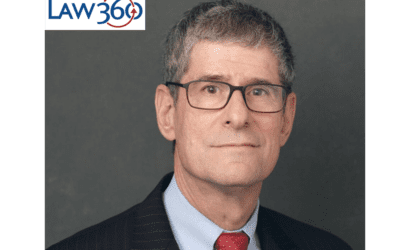A federal judge recently looked beyond the claim record and into a reviewer’s wallet in concluding that an insurer improperly terminated disability benefits.
Plaintiff Igor Gunn, a financial adviser, sought disability benefits due to symptoms of multiple sclerosis, fainting spells and anxiety. After initially approving the claim, Reliance Standard terminated benefit payments after 24 months, alleging that Gunn was unable to prove his inability to work at an occupation.
Reliance Standard Life based its conclusion on a file review conducted by Dr. William Scott Hauptman, who the court pointed out reviewed files exclusively for Reliance. Hauptman’s deposition revealed that he derives one-third of his income from reviewing Reliance files.
The first substantive issue the U.S. District Court for the Central District of California addressed was the standard of review since the claim was governed by the Employee Retirement Income Security Act, 29 U.S.C. §1001, et seq. Gunn v. Reliance Standard Life Insurance Co., No. CV-04-01852 FMC, 2005 WL 2901792 (C.D. Calif. Oct. 31).
Finding the mere fact that the same party administers benefits and pays claims is an insufficient basis to reduce the discretion flowing from plan language reserving discretion, the court discussed whether other probative evidence supported the existence of a conflict. The court cited language in Firestone Tire & Rubber Co. v. Bruch, 489 U.S. 101 (1989), cautioning that when ERISA claims are reviewed by an entity operating under a conflict of interest, it is a ”factor” to be considered. The court identified several factors that constituted probative evidence the insurer favored itself.
The most important issue the court identified, though, was its conclusion that the referral to Hauptmann constituted bias.
Citing Conrad v. Reliance Standard Life Insurance Co., 292 F.Supp.2d 233 (D. Mass. 2003) – another ruling critical of Hauptman – the court determined that RSL’s use of the doctor demonstrated bias, particularly since he highlighted in his report facts and issues supporting a denial of benefits.
”Dr. Hauptman appeared to be a man with a mission … to find a way to justify a denial of benefits,” the court noted. Accordingly, the court applied a de novo standard of review.
Turning to the merits of the claim, the court found no justification for the insurer’s actions. It was clear to the court that Gunn was incapable of working, and Reliance Standard’s fallback justification was also undermined. The insurer tried to support its decision to cut off benefits by citing a policy provision limiting the duration of benefit payments for mental and nervous disorders to 24 months. The court ruled that even if Gunn suffered from depression, all of the evidence supported a finding that the disability was due in whole or in part to MS and that the limitation was not validly applied to Gunn’s claim.
This ruling is one of many that have been critical of Reliance Standard’s use of Hauptman. In addition to Gunn and Conrad, Hauptman was singled out for criticism in Omasta v. Choices Benefit Plan, 352 F.Supp.2d 1201 (D. Utah 2005); Smetana v. Reliance Standard Life Insurance Co., 2003 U.S. Dist. LEXIS 19564 (E.D. Pa., Oct. 1, 2003); Schmidlkofer v. Directory Distributing Associates, 107 Fed.Appx. 631; 2004 U.S. App. LEXIS 18270 (6th Cir., Aug. 25, 2004) (unpublished); Smith v. Reliance Standard Life Insurance Co., 2004 U.S. Dist. LEXIS 26195 (S.D. Fla., Sept. 9, 2004); Smith v. Reliance Standard Life Insurance Co., 2004 U.S. Dist. LEXIS 26261 (S.D. Fla., Nov. 9, 2004); and Bowman v. Reliance Standard Life Insurance Co., 2003 U.S. Dist. LEXIS 4398 (N.D. Ill., March 21, 2003), a case my office litigated.
The truly important lesson taught here, though, is not in the specifics of this case. The importance of Gunn is in its reporting on the fruits of discovery, which completely undercuts the 7th U.S. Circuit Court of Appeals’ observations in the 1999 case of Perlman v. Swiss Bank Corporation, 195 F.3d 975, 981-2:
”It follows from the conclusion that review of UNUM’s decision is deferential that the District Court erred in permitting discovery into UNUM’s decision-making. There should not have been any inquiry into the thought processes of UNUM’s staff, the training of those who considered Perlman’s claim, and in general who said what to whom within UNUM – all of which Perlman was allowed to explore at length by depositions and interrogatories, and on some of which the district judge relied. Deferential review of an administrative decision means review on the administrative record.
”We have allowed parties to take discovery and present new evidence in ERISA cases subject to de novo judicial decisions, see Casey v. Uddeholm Corp., 32 F.3d 1094, 1098-99 & n. 4 (7th Cir. 1994); accord, Kinstler v. First Reliance Standard Life Insurance Co., 181 F.3d 243 (2d Cir. 1999), but never where the question is whether a decision is supported by substantial evidence, or is arbitrary and capricious.
”Six courts of appeals have held that when review under ERISA is deferential, courts are limited to the information submitted to the plan’s administrator. Wilkins v. Baptist Healthcare System Inc., 150 F.3d 609, 617-20 (6th Cir. 1998); DeFelice v. American International Life Assurance Co., 112 F.3d 61, 65 (2d Cir. 1997); Donatelli v. Home Insurance Co., 992 F.2d 763, 765 (8th Cir. 1993); Quesinberry v. Life Insurance Company of North America, 987 F.2d 1017, 1021-27 (4th Cir. 1993) (en banc); Sandoval v. Aetna Life & Casualty Insurance Co., 967 F.2d 377, 380 (10th Cir. 1992); Luby v. Teamsters Health, Welfare and Pension Trust Funds, 944 F.2d 1176, 1184-85 (3d Cir. 1991).
”One court has gone the other way, Wildbur v. ARCO Chemical Co., 974 F.2d 631, 636-42 (5th Cir. 1992), but we believe that the majority has this right. Perhaps the disagreement is more apparent than real.
”Courts in the majority have allowed, what Wildbur stressed, that discovery may be appropriate to investigate a claim that the plan’s administrator did not do what it said it did – that, for example, the application was thrown in the trash rather than evaluated on the merits. But when there can be no doubt that the application was given a genuine evaluation, judicial review is limited to the evidence that was submitted in support of the application for benefits, and the mental processes of the plan’s administrator are not legitimate grounds of inquiry any more than they would be if the decision-maker were an administrative agency.”
Discovery was crucial to Gunn in demolishing the evidentiary basis for Reliance Standard’s determination. No court could find the evidence uncovered in Hauptman’s deposition anything but highly relevant in evaluating the claim, yet strict adherence to Perlman would have prohibited such discovery since it produced evidence outside the claim record, which the court mistakenly calls an ”administrative” record, a misnomer for the reasons stated inPerlman‘s dissent – ERISA cases are not administrative law proceedings.
After seeing the importance of the evidence revealed by discovery inGunn, the narrow viewpoint in Perlman appears to miss the mark, and once again, the dissent makes the key observation that the ”process by which the administrator came to its conclusion … is precisely the point on which a court should be focusing, in order to give content to the rights conferred by [29 U.S.C.] §1132,” 195 F.3d at 986 (Wood, J., dissenting).
Given the Gunn ruling, as well as recent state insurance department investigative reports involving Unum Provident Corp. finding systemic unfair claims practices, claimants deserve the protection that discovery affords to assure the courts, Congress and the public that claimants are receiving the ”full and fair review” to which they are entitled under the ERISA statute.
– See more at: /articles-and-archives/articles-by-mark-d-debofsky/another-court-questions-impartiality-of-doctor-2/#sthash.apyzTbtm.dpuf
This article was initially published in the Chicago Daily Law Bulletin.






